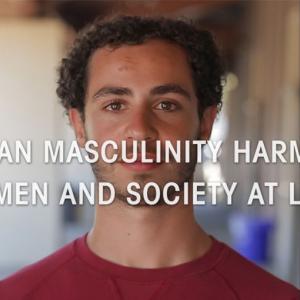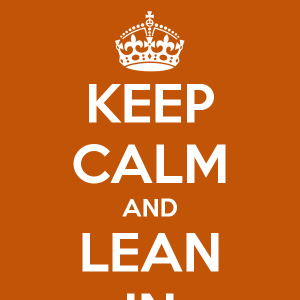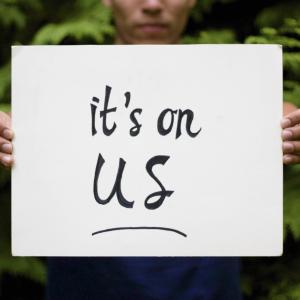

From impossible standards of beauty generated by the fashion and make-up industry to the disproportionate number of women who are elected to political office, women and girls in America face a variety of obstacles in their journey of empowerment. But what also warrants attention are some of the less noticeable consequences when gender norms are so narrowly defined across the board. For instance, if we characterize women as submissive, emotional, or alluring beings, then what does it mean to be a man? And how might damaging myths and stereotypes about masculinity produce its own host of social ills?
These questions remain central to The Representation Project’s latest documentary The Mask You Live In, a film that ambitiously seeks to re-evaluate how masculinity is defined and expressed in America. According to director Jennifer Siebel Newsom, when mainstream culture views masculinity as a rejection of everything feminine, traits like kindness, healthy emotions, and constructive resolution of conflict become undervalued if not wholly disregarded for most men. Instead, the prevailing norms that young boys receive from their homes—as well as in movies, sports, and video games—push them to equate masculinity with domination, violence, stoicism, financial success, or sexual conquest.

There is room and need for men’s stories in the narrative of ending violence against women.
In blending our separate and shared experiences we find common ground. Together they lead us to what Dr. King described as "the fierce urgency of now." Every action we take today will save others the pain and suffering that is in our collective past. We need to add male voices and stories to those of women who have been speaking out about violence for decades.
Today I work as a co-coordinator in Oregon for the We Will Speak Out campaign. Our goal is to bring faith communities into the movement to end domestic and gender-based violence. This not a women’s movement. It is a movement of all people of faith to speak up and speak out to end the use of power over women and children. It is a movement that walks with survivors in their healing journey. It is a movement that strives to live into Jesus’ commandment to “Love one another as I have loved you.”
The "Broken Silence" report commissioned by Sojourners and IMA World Health indicates that the main issue in keeping pastors from speaking out about sexual and gender-based violence is a lack of knowledge on the issue. By speaking our truth and sharing our history we provide both the common ground and urgency to take action—together and now.

Sitting in Prajwala's small conference room adjacent to a chaotic market, I asked Sunitha where the strength came from to charge ahead into danger, violence, and sometimes even rejection by the women Prajwala served. I don't remember her exact words - but the gist was that the strength came not from herself, but from faith in her own experience of God. Not a God owned by some religious denomination, but the real One. That One who never let Sunitha down when it was time to pay the staff, deal with the mob, handle corrupt police, or remain resolute in the face of failure.
I have been blessed and humbled to have met these three women and remain inspired by what they do, particularly their commitment to empowering other women and girls. Sunitha told me to not just show up and feel sorry. Send money if you are inclined, but most importantly, speak about sexual slavery and trafficking to everyone you know. Don't allow anyone to pretend it isn't going on in your own community. Only when all men are vocal about this and intolerant of any abuse of women will things improve.
I pray that I may develop a sliver of the courage Anna, Anna, and Sunitha model.

Then there’s the more recent pragmatic argument: you should want gender parity because of how it will help your own family, business, or city. In short, inequality and violence harms the women who are your partners and friends. Some suggest that it’s mighty convenient that men are ready to take a stand when we finally see how it benefits us. But one female friend advised me that men should ease up on themselves: “Just deliver gender parity, and we’ll gladly forget HOW exactly you got there. Deal?”
According to the Global Gender Gap Report released at the latest World Economic Forum, it will take 80 years to reach gender parity in pay, status, governance, etc. In the year 2095, my daughters would be approaching 100 years old, and my mother, wife, two sisters, aunts and so forth would be long dead along with me and all the women that I care about today. Why wait 80 more years? It’s time for all men to lean in and help cut that number in half (and then some).
I’ve joked before that having two older sisters is what every boy needs to make the world spin around more equitably. If not biological sisters, then let’s find older sisters for every boy. Hopefully with gender parity cut down to 20 years from 80, my 7-year-old son will need to work twice as hard to “get ahead,” since he’ll finally be competing fairly with the other half of the sky. May it be so.

I was six by the time my new daddy showed up. He was quiet yet strong and kind. I could tell by the way he always spoke to mama, his voice tempered, the way he looked at her. For the nearly 40 years that they were together until my mother passed away, I can’t recall a time I ever saw my stepfather raise his voice to her, let alone hurt her. In fact, I don’t know too many men that would accept an abused woman with five small children and raise them as his own. He cherished my mother, in ways that I suspect my biological father, tried so desperately to do.
They were two men. Each woven in his own love and laud for my mother. One cloaked in his pain; the other in his kindness and kinship. But despite their differences, they were both my father, and we still have an equal and equitable obligation to dignify them the same.
That is why when I founded Saving Promise—a national domestic violence prevention organization inspired by my daughter’s little girl named Promise—there were three things that I was clear about: 1) we must focus on greater public awareness and prevention; 2) we must mobilize the community to take action; and 3) we must engage and invite men to be a part of this movement. Men who need help and men that want to help.
This month marks Women’s History Month, a time when we lift up and honor women around the world, especially those whose journeys have paved the way for the next generation. Through my journey of building Saving Promise there is one thing that I have come to understand: if we continue to address intimate partner violence as a women’s issue and not invite men to be a part of this dialogue, we will no sooner prevent this global public health crisis. Therefore, I personally believe we must reflect not only on the paths that we’ve paved for women, but those that we carry in the deepest corners of our hearts—our communities, our families, our children, and our men.

A valuable part of bystander intervention work in communities and schools, then, is helping men and boys understand how unhealthy social norms of masculinity can prevent them from intervening to stop sexual assault. Healthier forms of masculinity, however, can help boys and men become part of the solution by practicing prevention. As part of our Healthy Masculinity Action Project, we have developed some core values and actions to spread the message of healthy, nonviolent masculinity:
- recognizing unhealthy, risky, and violent masculine attitudes and behaviors that are harmful to the self and others
- replacing unhealthy masculine attitudes and behaviors with emotionally intelligent attitudes and behaviors that respect the self and others
- learning to empathize with the self and others
- supporting gender equity and other forms of equity
- learning and using emotional and social skills to constructively challenge unhealthy masculine attitudes and behaviors expressed by others
At MCSR, we don’t believe that men are naturally or biologically violent, or that somehow the need to kill, maim, rape, and more generally dominate is written into the language of our genes. If no genetic code binds us to violence, if no destiny of murder and mayhem irrefutably awaits us, we can choose to intervene when faced with unhealthy, harmful masculine attitudes and behaviors. We can choose healthy masculinity and present it as choice for men and boys. It’s on us to do so.

Paul teaches a bedrock unity in marriage. Both the Christian wife and husband are members of the Church which is Christ’s body (v30) and have further cemented this with particular devotion to union with each other (v31). Since we have this fundamental unity, a divisive gender identity in marriage or elsewhere is impossible to accept—it sets up barriers where Christ recognizes none.
As such, men inside or outside of marriage must follow Christ’s example in giving of themselves for others, particularly to those who rely and trust on them. This is why domestic violence is such a satanic perversion of masculinity: it replaces a protective, self-sacrificial love with a violent, domineering authority. A relationship which should point to Christ and the Church instead becomes controlled by power and violence.
Paul forces me to think differently about what it means to be a man. I need to reorient my actions in a way that recognizes that Christians, male and female, are all part of one body of Christ. That should push men, especially those in positions of authority, to a love that seeks to build up and to serve rather than domineer. That love, rather than a macho authority, is the true mark of a man.

The roots of violence against women lie in gender inequality and the abuse of power, which in turn shapes our understanding of masculinity and femininity. What does it mean to be a man or woman in the 21st century? Many Christian authors argue that men should demonstrate leadership and competitiveness, often at the expense of women. Instead, we need to emphasize understandings of masculinity that recognize the diversity of men and allow space for women to also exercise leadership and fulfill their potential.
For Christians, our most important model of masculinity is that of Jesus Christ. As a leader and a compelling speaker and debater, Jesus demonstrated traditional masculine characteristics in his era. His miraculous powers put him in a unique position of authority. And yet he chose to live as a servant, to be nonviolent and to respect women, including relying on them for financial support. His life shows us that:
- all men and women are worthy of respect;
- masculinity does not need to be characterized by violence; and
- power should not be abused, but used in the service of others.

We’ve lost Leonard Nimoy. Justly famous as Star Trek’s iconic Mr. Spock, he was also a poet, musician, and photographer. And he was my role model.
I was 10 when I discovered Star Trek—and I immediately gravitated toward the taciturn Vulcan who embraced logic and science even as he wrestled with deep human emotion. The resemblance between Spock and the pre-teen me would have been startling had I recognized it as such; instead, I only saw a character who embodied the conflicts I felt—intellectually and emotionally.
Nimoy was a supporter of equal rights. For example, he convinced Paramount to end the pay inequity Nichelle Nichols experienced during the original Star Trek series. Later, he refused to sign on to the animated Star Trek series until Nichelle Nichols and George Takei were hired to voice their own characters. Away from Star Trek, he challenged “definitive” elements of beauty with The Full Body Project photographs.
But why did Nimoy—why does any man—work to end sexism and discrimination?
Simply: It’s the right thing to do. That ought to be all anyone needs. At the very least, he did it for co-workers whom he respected.
Men who want to “Live Long and Prosper” work to make that possible for everyone, so that their claims to value justice for all have integrity.

Violence against women and girls is not only a “women’s issue,” but a human rights issue that affects all of us. We are indeed “caught in an inescapable network of mutuality,” as Dr. King said, “Whatever affects one directly, affects us all indirectly.” The abundant life that Jesus offers is deeply connected to the well-being of others. (John 10:10)
For men and women to experience reconciliation and wholeness, we must prayerfully work together for gender justice. Download our free prayer calendar. It’s full of facts and prayer requests to help you put your faith into action to end violence against women.
Share it during Women’s History Month with your sisters and brothers, your sons and daughters. Pray through the calendar as part of your Lenten journey. Encourage your friends and faith community to raise their voices to make violence against women history.
Together, through prayer and action, we can imagine a new way forward for both women and men—for the flourishing of all God’s children.